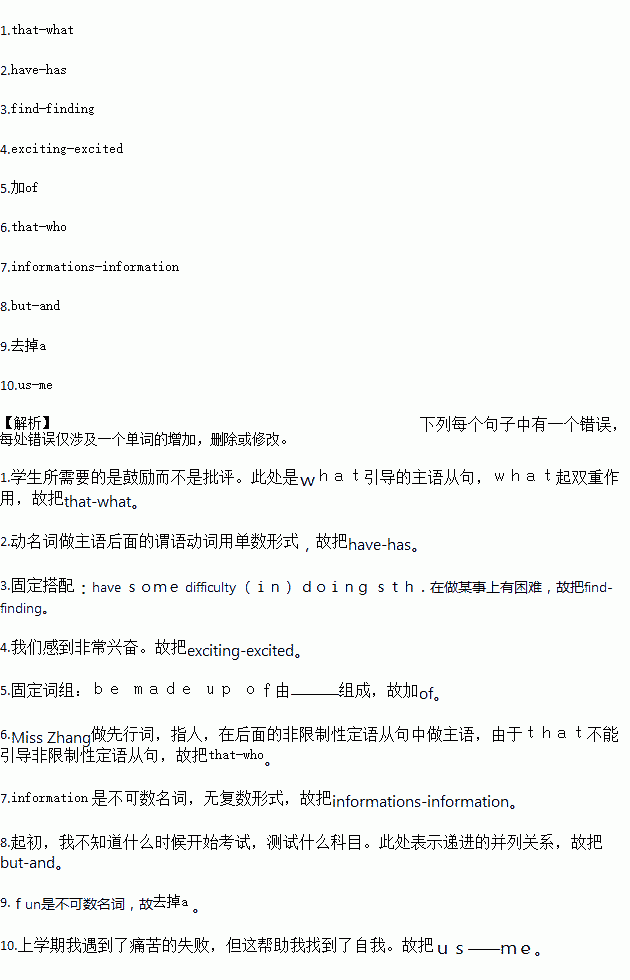题目内容
每处错误仅涉及一个单词的增加,删除或修改。
增加:在缺词处加一个漏字符号(∧), 并在其下面写出该加的词。
删除:把多余的词用斜线(\)划掉。
修改:在错的词下划一横线,并在该词下面写出修改后的词。
注意:每句只有一处错误多改不计分。
1.That students need is teachers’ encouragement rather than criticism.
2.As is known to all, reading books have many advantages.
3.Please contact me if you have any difficulty find the watch.
4.Because we hadn’t had ice cream for a long time, we got very exciting.
5.Our class is made up 50 students.
6.On the way I met my neighbor, Miss Zhang, that was walking her dog.
7.Could you give me some informations on Mike?
8.To begin with, I’d like to know when the entrance exam will take place but which subjects will be tested.
9.What a fun it is to explore a new place!
10.Last term, I met a painful failure, but it helped us find a new self.
 53随堂测系列答案
53随堂测系列答案

 e. However,some of the more specific results are strange enough. For example,“practical and functional”shoes were generally worn by more“pleasant”people,while ankle boots were more linked with“aggressive”personalities. The strangest of all may be that those who wore“uncomfortable looking” shoes tend to have “calm” personalities. And if you have several pairs of new shoes or take extreme care of them,you may suffer from“attachment anxiety”,spending lots of time worrying about what other people think of your appearance. There was even a political calculation in the mix with more liberal(主张变革的)types wearing“shabbier and less expensive” shoes.
e. However,some of the more specific results are strange enough. For example,“practical and functional”shoes were generally worn by more“pleasant”people,while ankle boots were more linked with“aggressive”personalities. The strangest of all may be that those who wore“uncomfortable looking” shoes tend to have “calm” personalities. And if you have several pairs of new shoes or take extreme care of them,you may suffer from“attachment anxiety”,spending lots of time worrying about what other people think of your appearance. There was even a political calculation in the mix with more liberal(主张变革的)types wearing“shabbier and less expensive” shoes.